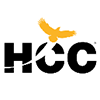Houston Community College (HCC), also known as the Houston Community College System (HCCS), is a community college system in Houston, Missouri City, Greater Katy and Stafford, Texas, USA. The following is a detailed introduction to it:
History
In 1927, the Houston Independent School District founded its first community college, Houston Junior College (for whites), which later evolved into the University of Houston and the Houston African American College, now Texas Southern University.
In 1971, the district established HCCS after the evolution of the above colleges.
School size
Number of students: There are many students, and in 2015, there were more than 5,700 international students.
Number of faculty and staff: There are 2,535 academic staff and 1,465 administrative staff.
Number of campuses: There are 23 commuter campuses.
Professional settings
It offers a wide variety of majors, covering business and management, health services, computer science, engineering technology, art and design, and other fields. Common majors include :
Business and Management: Such as business management, marketing, accounting, finance, etc., provide students with comprehensive business knowledge and skills, and can be employed in multiple industries such as retail, finance, and consulting after graduation.
Health Services: Including nursing, medical technology, health science, etc., students can work in hospitals, clinics, home care, rehabilitation centers and other medical institutions after graduation.
Computer Science: There are majors such as network security, programming, and database management to cultivate students' professional capabilities in the field of information technology to adapt to the needs of the evolving technology industry.
Engineering Technology: Majors such as electrical engineering, mechanical engineering, and architectural design provide students with basic knowledge and practical skills in the engineering field, laying the foundation for entering related engineering industries.
Art and Design: Covering majors such as graphic design, photography, and drama, cultivate students' artistic creativity and aesthetic ability, and can engage in related work such as artistic creation, design, and performance.
Teaching Features
Small class teaching: The class size is usually around 10 to 30 people, and the interaction between teachers and students is more frequent. Teachers can teach more targetedly and improve students' abilities.
Flexible course arrangement: Provide flexible learning methods such as online courses and weekend courses to meet the needs of different students and facilitate students to arrange their studies according to their own schedule.
English language support: For students whose native language is not English, its open admission policy does not require English proficiency at the time of admission, but there are 18-month full-time English proficiency courses and remedial courses as support.
Practical teaching: Focus on the cultivation of practical ability, through internships, experiments, projects, etc., let students apply theoretical knowledge to actual operations and improve students' employment competitiveness.
Campus Life
Student Organizations: There are many student organizations and clubs covering various hobbies and professional fields. Students can participate according to their own interests to enrich their extracurricular life and expand their interpersonal relationships.
Sports Activities: Various sports activities are provided for students on various campuses, including basketball, football, golf, tennis, volleyball, etc. Students can participate in sports competitions on campus to enhance their physical fitness and cultivate team spirit.
Campus Facilities: The campus is equipped with complete teaching facilities and living facilities, such as libraries, laboratories, gymnasiums, restaurants, etc., to provide convenience for students' study and life.
Transfer Opportunities
Implement "2+2" transfer with four-year universities The majority of community colleges have signed transfer agreements with four-year universities to ensure that the credits earned at community colleges are recognized in four-year degree programs, providing students with the opportunity to continue their studies at four-year universities. It is a springboard to prestigious American universities.
Application conditions and tuition
Application conditions: The application threshold is relatively low. It is open to students who are 18 years old or older and can provide school certificates. There is no age limit and no entrance examination is required. Some majors may have specific prerequisite course requirements.
Tuition: The average annual tuition is about US$6,000. For international students, plus living expenses, the overall cost of studying abroad is relatively low, with a high cost-effectiveness.
-

Harvard University
-

Massachusetts Institute of Technology
-

South University
-

University of West Georgia
-

Stanford University
-

Northwest Nazarene University
-

Hawaii Pacific University
-

Shorter University
-

Nova Southeastern University
-

Saint Leo University
-

Mesoamerican University
-

Istmo University
-

Mariano Galvez University of Guatemala
-

Regional University of Guatemala
-

Galileo University
-

Francisco Marroquín University
-

Rafael Landívar University
-

University of the Valley of Guatemala
-

University of San Carlos of Guatemala
-

Technological Institute of Tlaxcala Plateau
-

Golfo University
-

Technological University of South Sonora
-

Technological University of Huejotzingo
-

Tizimín Institute of Technology
-

Chilpancingo Institute of Technology

